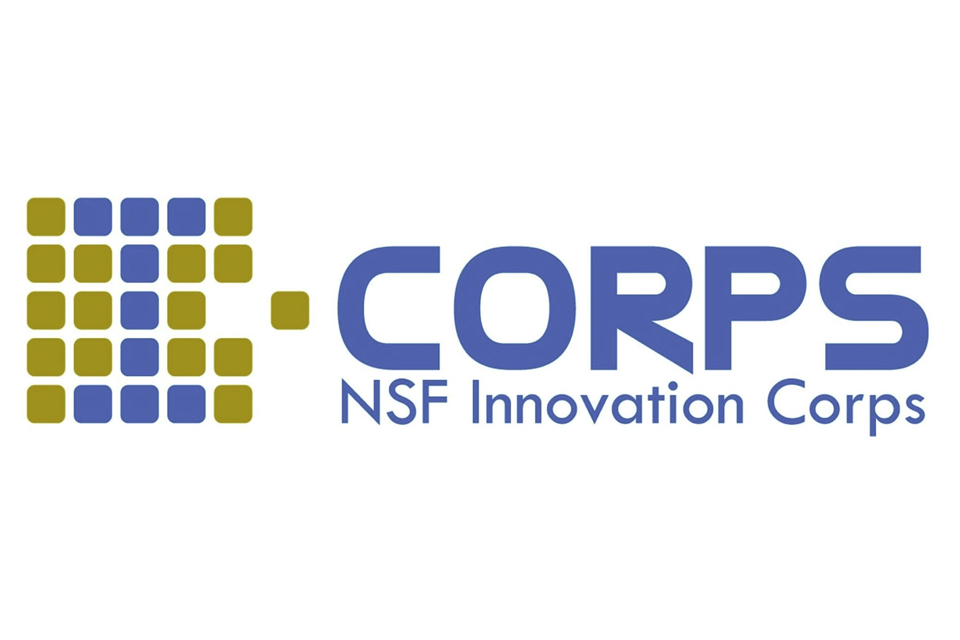GSAS Students Develop Entrepreneurial Skills in I-Corps Program

June 22, 2020
Simon Goodacre | Graduate School of Arts and Sciences
On April 13, four teams presented their business ideas in the Innovation Corps (I-Corps) “Demo Day,” sponsored by Brandeis Innovation. I-Corps is supported by the National Science Foundation, and Brandeis is one of ten universities in the New England region selected to host the program. I-Corps uses experiential education to help STEM researchers to collaborate with business and government students to gain valuable insight into entrepreneurship, starting a business, or industry requirements and challenges.
I-Corps is intended to help students commercialize basic research in the sciences. The training enables researchers to reduce the time it takes to translate a promising idea from the laboratory to the marketplace. Program participants, known as I-Corps Fellows, work on interdisciplinary teams, obtain training in innovation and entrepreneurship, engage in career development activities, and build cross-institutional connections. Two of the teams competing at Demo Day—NextZyme and TeamLift—featured GSAS students, and another—Cancer Fighters+—featured a GSAS alumnus.
NextZyme, led by PhD candidate Michael Sennett, develops enzymes that will enable newly-discovered proteins to decompose Polyethylene terephthalate (PET) plastics into the material needed to create new plastic products. Currently, “about 25 million tons of plastic waste is landfilled in a given year,” says Sennett. “This is an unfathomable amount of waste that gets into our soils, streams, and oceans.” He hopes that the enzymes will encourage more plastic producers to consider recycling as an alternative, which would “divert this plastic waste stream into a source of plastic building blocks, thereby addressing both environmental and health concerns.” The team also includes a postdoc, an undergraduate and a Heller student.
With TeamLift, PhD candidate Peizhao Li and Master’s candidate Jingnu An aim to build the “missing infrastructure” for the skills economy through the “first skills wallet.” The wallet is “a skills mapping tool to record one's skills in workforce development,” says Li. Instead of relying on self-reported experience or skill assessments, the skills wallet serves as a ledger of what workers have actually demonstrated and achieved in terms of professional skills and development. Their team included two interns and a student from the International Business School.
During the program, teams meet with Brandeis mentors and insiders from their industry of interest. “This is a great networking experience and a chance to see if an industry you’re interested in is growing or not,” says Sennett. “I-Corps really provided me with the impetus to develop a specific network.” During these conversations the fellows learn about the pressures in the marketplace, which enables them to design their research approach around specific, real-world challenges.
Students on both teams agree that they learned a great deal participating in I-Corps. “I-Corps is a good place to develop personal entrepreneurship and gain valuable insights,” says Li. “In this program you can learn how to come up with an idea to launch your own business, how to validate your idea, and how you can scale up.” Sennett agrees. “I want to embrace challenges and embark into the unknown,” he says, “but first I need to prepare myself for these challenges. I felt as though I-Corps, in addition to getting my PhD, would give me the skills required to succeed in an entrepreneurial setting, and I believe it has.”
Sennett also enjoyed the opportunity to collaborate with students from other schools. “As a scientist in training, you become comfortable delivering technical talks to other scientists in your field which are narrow in scope and loaded with jargon. However, working with students in other disciplines, especially from Heller, you need to develop a new style of communication,” he says. “I would encourage everyone to develop the ability to discuss their research, idea, or findings with people outside their immediate field of expertise.”
The learnings from I-Corps are not just theoretical—they directly relate to the projects being pitched. For instance, there were two major findings from I-Corps for NextZyme. “First, we learned that we should initially pursue engineering a PET plastic degrading enzyme instead of a polyurethane degrading enzyme,” says Sennett. “PET is a simpler target and easier to collect. Second, we learned that the major cost barrier for biochemical degradation isn’t enzyme activity. Acting on this knowledge, we have redesigned our experiments to address the true cost barrier.”
For students interested in I-Corps, Sennett’s advice is, “Don’t be afraid to embrace a new challenge and jump into something you’ve never done before, especially if you’re really passionate about an idea, field, or problem.”






